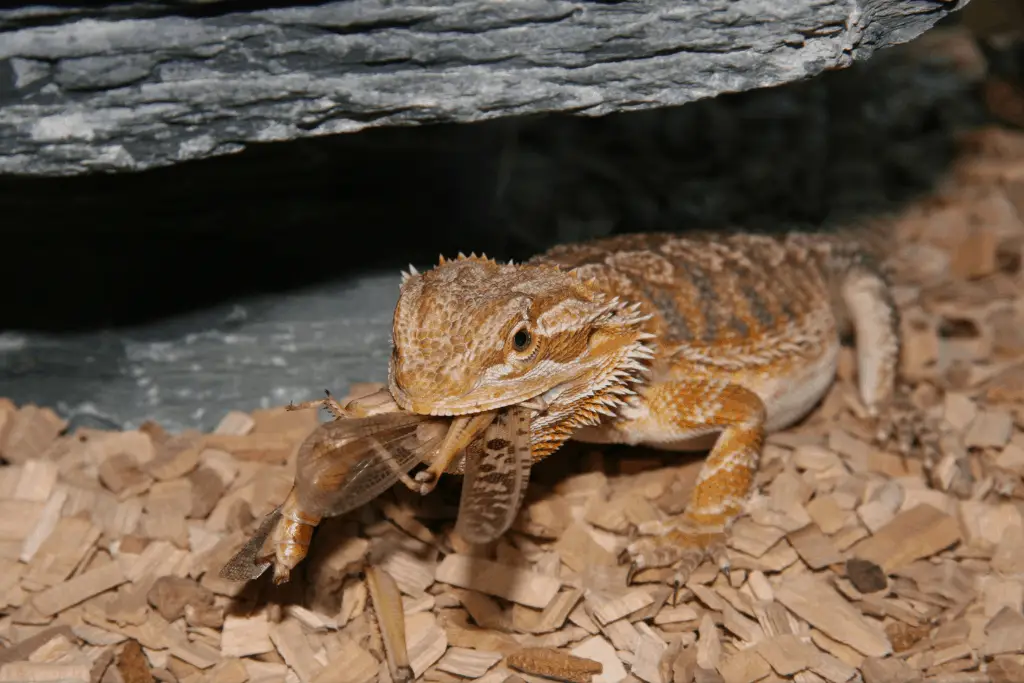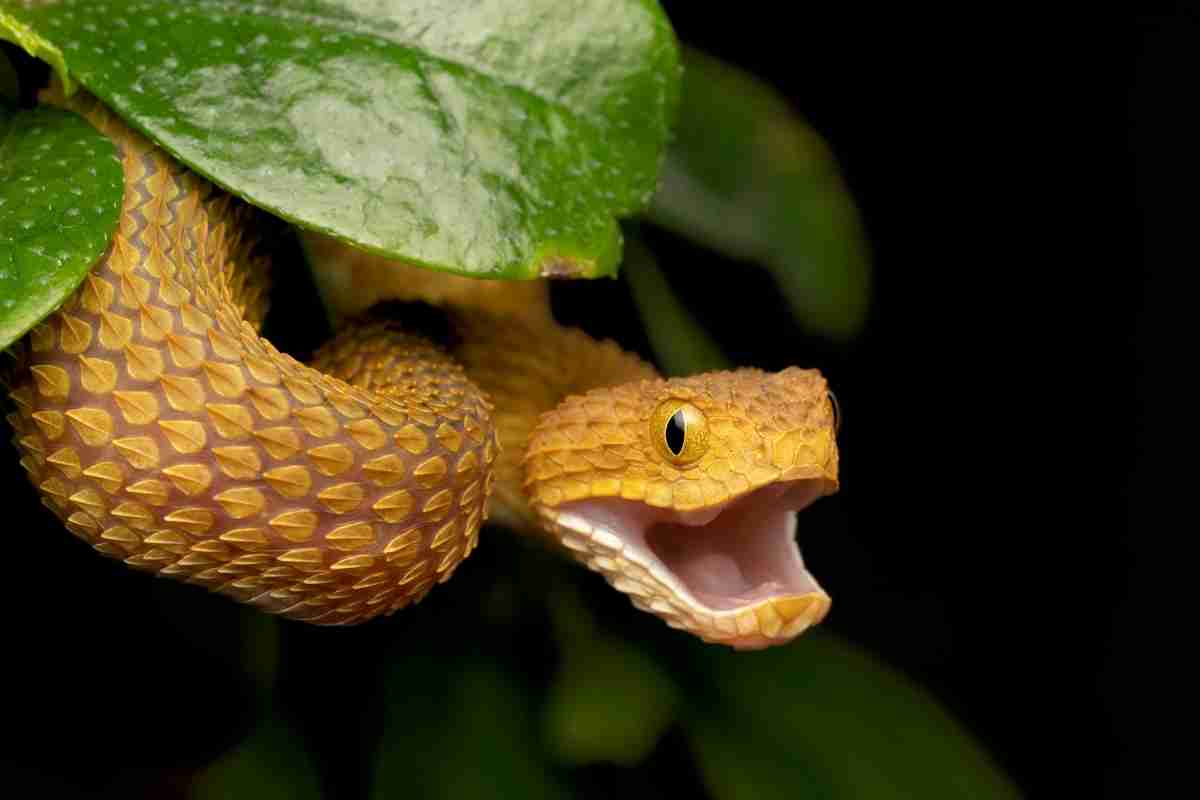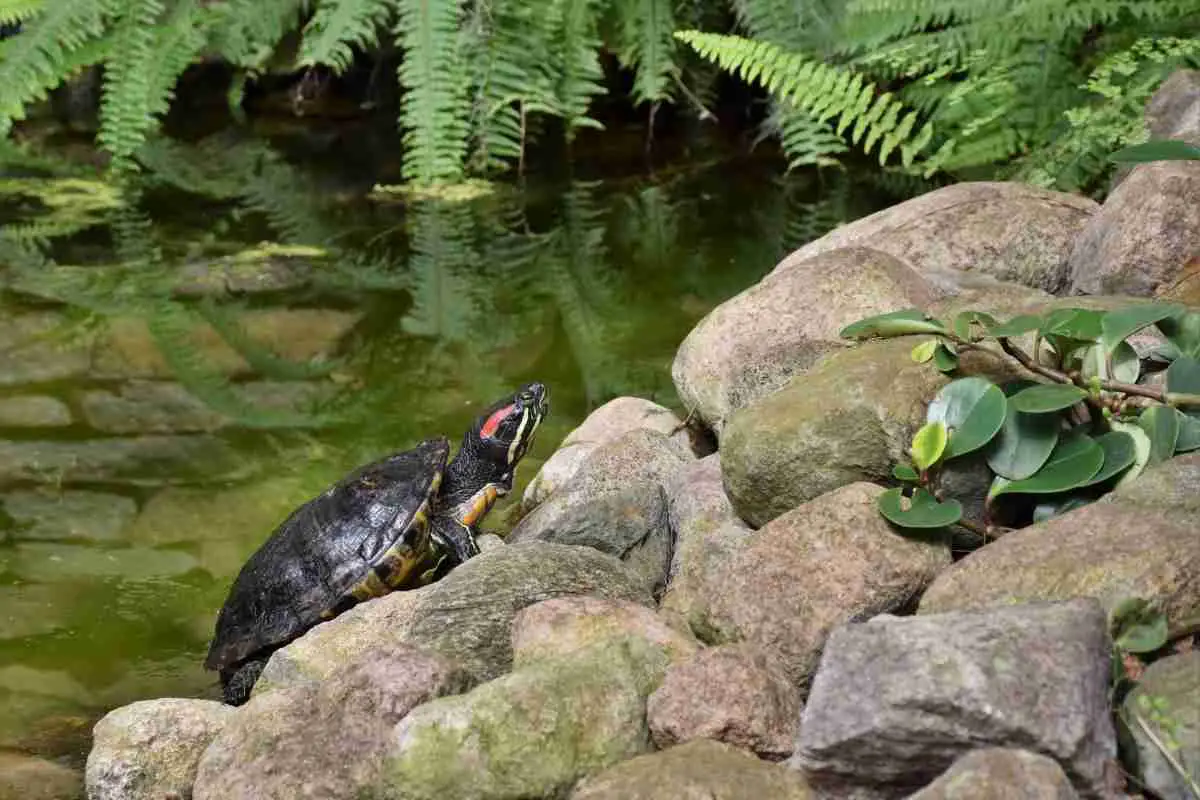Bearded dragons like to eat waxworms, mealworms, grubs, and crickets as these insects provide all the essential vitamins and nutrients they need to survive.
They can also eat a variety of vegetables like zucchini, mustard greens, kale, collard greens, and shredded carrots “but” Can bearded dragons eat tomatoes?
Yes, bearded dragons can eat tomatoes as they are a great source of vitamin A. However, they should not eat tomatoes every day as their main diet because they contain high amounts of phosphorus and are low in calcium.
Bearded dragons, in general, need certain nutrients in their diet this is why you must feed your reptile a limited amount of tomatoes and because they are acidic in nature which can cause problems for your bearded dragon.
Can Bearded Dragons Eat Tomatoes Leaves?
Unfortunately, bearded dragons can’t eat tomato leaves or stems because these green parts of the plant contain poisonous compounds.
Take leaves, for example, Leaves that contain high levels of alkaloids, such as Solanine and Tomatine that can badly affect your bearded dragon’s health.
- Solanine is a highly poisonous compound found in tomato leaves, which can interrupt the digestive and neurological functions of your bearded dragon.
- Tomatine is also a poisonous compound found abundantly in tomato leaves that can harm your bearded dragon’s neurological functions.
Although tomatoes in the right quantity are good for your bearded dragon, you should exclude the leaves before serving.
Related Articles
Can Bearded Dragons Eat Tomatoes Seeds?
Although some people say bearded dragons can eat tomato seeds, you should avoid giving them seeds. If tomato seeds are soft and small, why can’t your bearded dragon eat them?
Well, Tomato seeds can cause choking hazards in bearded dragons. So, it is better not to give them tomato seeds.
A research article published on NCBI highlights that tomato seeds contain 8.5% moisture, 20% fat, 35.1% dietary fiber, 3.1% ash, 0.12% calcium, and 0.58% phosphorus.
pubmed.ncbi.nlm.nih.gov
As you can see seeds contain four times more phosphorus than calcium, indicating that they are harmful to your bearded dragon’s health.
When your bearded dragon eats tomato seeds too often, the high phosphorus to calcium ratio will disturb the homeostatic system.
That’s why seeds are harmful to your pet because they can result in various health conditions, including metabolic bone disease.
The health condition develops when the presence of high phosphorus in the body prevents it from absorbing calcium.
What About Tin Tomatoes?
Tin tomatoes are highly acidic and can leach bisphenol A (BPA) into the tomatoes because of acidity. Tins, cans, or containers are made of BPA,
which is an industrial chemical used to manufacture plastics and resins.
BPA comes from polycarbonate plastics and epoxy resins. Packaged food companies use BPA as a sealant to line tins and cans.
A research study conducted at the University of Missouri highlights that BPA can cause changes in sexual function for certain reptiles, including bearded dragons.
There is no research done on tin tomatoes for bearded dragons. So, considering the general implications for reptiles, I think you should not feed your pet this type of food.
Related Article:
Can Juvenile Bearded Dragons Eat Tomatoes?
Juvenile bearded dragons require all sorts of essential nutrients for their development and growth. A baby or juvenile bearded dragon should eat insects to get proteins.
At the same time, they should consume lots of veggies to get calcium. As you know, calcium is important for their muscle growth, you must give them 50% plant-based food.
However, tomatoes can cause calcium imbalances in the body and because calcium is the most important element for a bearded dragon, it is not a wise idea to feed it with tomatoes.
But with that said, a baby bearded dragon can eat more tomatoes than an adult to get all the essential nutrients required for its proper growth.
Are Tomatoes Healthy For Bearded Dragons?
Tomatoes are a rich source of essential nutrients, such as vitamins and antioxidants. Human beings eat tomatoes to boost their immune system, maintain their metabolism, and get a lot of vitamins A and C.
Benefits of Feeding Your Dragon Tomatoes:
- Vitamins
- Minerals
- Fiber
Vitamins and Minerals
Online research shows that tomatoes are a rich source of essential vitamins and minerals that protect bearded dragons from a variety of diseases, such as cardiovascular problems, circulatory conditions, and even cancer.
Another nutrient found in tomatoes that can improve your pet’s health is fiber available in the form of lignin, cellulose, and hemicellulose.
This helps them get the nutrients they need, but it should only consist of about a tenth of their diet.
Some herbivorous reptiles, like tortoises, need fiber in their diet. Though herbivorous reptiles eat almost exclusively plants, they do need protein.
Fiber
Fiber is an important nutrient for your reptile pet. Not only does it improve digestive health, but it is helpful in the intestinal fermentation process, which is required for the synthesis of vitamin B and fatty acids.
Tomatoes contain vitamin C, K1, folate, potassium, and sugar. Naringenin, lycopene, chlorogenic acid, and beta-carotene are important compounds found in tomatoes.
Tomatoes are a rich source of antioxidants, including lycopene, which provides a variety of health benefits, such as the prevention of heart diseases and cancer.
Lycopene is a compound that gives color to tomatoes. Considering this information, my verdict is that tomatoes are not bad for your bearded dragon.
Nutrients Of Tomatoes Per 100g
| Contents | Amount | Unit |
|---|---|---|
| Vitamin A | 75 | ug |
| Vitamin C | 16 | mg |
| Vitamin K | 7.9 | ug |
| Carbohydrate | 3.18 | g |
| Sodium | 42 | mg |
| Phosphorus | 29 | mg |
| Fiber | 0.9 | g |
| Water | 94.78 | g |
| Protein | 1.16 | g |
| Calcium | 5 | mg |
Health Hazards
If you feed your bearded dragon tomatoes in an appropriate amount, then this can cause some digestion issues So, you need to keep this in mind before deciding to feed your dragon a lot of tomatoes.
Here are some other reasons why you need to limit their supply of tomatoes:
- Low Calcium
- High Phosphorus
- Gut Problems
- Respiratory Issues
Low calcium
Do you know calcium is one of the most essential elements for your bearded dragon? These lizards require higher amounts of calcium in their diet, especially when you are keeping a baby bearded dragon as a pet.
Calcium plays a key role in bone and muscle development. Both calcium and vitamin D helps boost the overall functionality of your pet’s immune system, bone and muscle growth, heart health, and proper functioning of nerves.
However, when your bearded dragon eats too many tomatoes, it will cause calcium deficiency. It is because tomatoes have low levels of calcium content. Calcium deficiency can lead to various conditions, such as deformities in the jaw, limb, spine, and tail.
Compared to tomatoes, it is essential to feed your bearded dragons a lot of green leafy vegetables.
For example, lamb’s lettuce, Timothy Hay, and spring greens are excellent sources of calcium for your pet.
Make sure you don’t give your pet spinach because it can hinder calcium uptake and lack of calcium can cause metabolic bone disease.
Related Article:
High Phosphorus
Online research shows that tomatoes have inadequate calcium and phosphorus ratio. Phosphorus, in general, attaches to calcium and prevents the body from absorbing it.
When phosphorus stops calcium from absorbing in the cells, it can lead to poor bone and muscle development.
The optimal ratio for phosphorus and calcium in the bearded dragon’s body is 2:1.
It means if your bearded dragons get 100% calcium, they must maintain 50% phosphorus in the body to maintain metabolism and homeostasis. It is all about stabilizing the internal balance of the body.
Balanced homeostasis allows your bearded dragon to function in changing environments surrounding its body. For instance, the optimal temperature for your pet ranges between 88 degrees and 100 degrees Fahrenheit.
When the temperature is below 88 degrees or above 100 degrees, your bearded dragon will regulate its homeostatic function to adjust to the changing environment. Likewise, you must maintain 20% to 40% humidity levels.
Homeostasis is the way animals maintain a stable internal balance in their body. It allows animals to function in the changing external conditions surrounding their body.
Osmoregulation is an example of homeostasis. It is way osmosis is controlled by salmon to maintain a water balance.
So, when it comes to tomatoes, they contain 29mg of phosphorus and 5mg of calcium. Giving your pet tomatoes too often will cause an imbalance in the body and disturb the calcium-phosphorus ratio.
Gut Problems
Tomatoes can cause digestive issues for your bearded dragon, Giving your pet an excessive amount of tomatoes can cause diarrhea.
Bearded dragons like other reptiles have a sensitive stomach and intestinal structures. An imbalanced diet can cause problems in the gut area and harm the overall health of your pet.
Some people say that vegetables, leafy greens, and fruits make over 50% of their diet because these lizards are omnivores.
Yes, this is true. However, omnivores also eat animal-based food to maintain their overall health, including digestive wellbeing.
Respiratory Issues
Various dietary and environmental factors can cause respiratory problems for your bearded dragon.
For example, if your bearded dragon is stressed, not receiving a proper diet, or has a poor environment, it can cause changes in its homeostatic system.
As a result, your bearded dragon can suffer from respiratory tract infections. But, you can ask “what does this all have to do with tomatoes?
When you buy tomatoes in the store and give them to your bearded dragon without washing them properly, they may contain pesticides, viruses, bacteria, fungi, and parasites.
These microbes can affect lizards significantly and cause symptoms of respiratory infections. Sometimes, the severity of the symptoms can cause pneumonia and even the death of your beloved pet.
Some of the common symptoms are bubbles from the nose and mouth, discharge from the eyes, sneezing, lethargy, decreased appetite, and difficulty breathing.
Keep in mind that tomatoes are not directly responsible for respiratory conditions in your bearded dragon. It is more a matter of hygiene. Always wash veggies and fruits before giving them to your pet.
How To Prepare Tomatoes For Bearded Dragons?
Research shows that tomatoes are good for a bearded dragon if given the right quantity. Some varieties of tomatoes are harmful to your bearded dragon.
Here are the steps to feed tomatoes to your bearded dragon.
Since a large number of tomatoes can cause problems for an adult bearded dragon, as an owner, you should act more carefully for your reptile.
If you still want to give them this fruit, make sure you buy the regular tomatoes that are commonly available on the market.
Step 1
Wash the tomatoes properly under tap water. It is essential to wash and clean tomatoes before you feed them to your bearded dragon. Washing fruits and veggies, in general, is a good hygiene practice to avoid pesticides, chemicals, and microbes.
Step 2
After you have washed and clean tomatoes, the next step is to chop them up into small cubes or chunks. Feeding your bearded dragon small chunks of tomatoes will allow it to consume the fruit easily and enjoy the sweet juice.
Step 3
Measure the quantity and separate the amount suitable for your bearded dragon. A quarter of tomatoes will get the job done. Avoid filling up your bearded dragons on tomatoes as too many can cause developmental issues.
So, these are the three steps you need to follow when you want to feed your pet tomatoes. Add tomatoes to other leafy greens used in the salad and place the bowl in the terrarium.
It’s suggested that you purchase a bowl that provides easy eating for your bearded dragon. Feed your pet tomatoes once or twice a month.
Related Article:
Conclusion
Bearded dragons make great pets for a variety of reasons. First, they are social reptiles and enjoy the human presence around them. Second, they require low care and maintenance.
Third, they don’t have a special diet regime because anything rich in proteins, vitamins, and nutrients can be fed.
Bearded dragons can eat a variety of live food, such as mealworms, crickets, and king worms. In fact, worms are a staple food item for your bearded dragon.
Avoid giving your bearded dragon tomato hornworms because these invertebrates feed on solanine, a poisonous compound found in tomato stems, leaves, and vines.
You must not ignore tomatoes at all because they are a rich source of nutrients, including vitamins and antioxidants. Lastly, feed your pet the right quantity (a quarter of tomato) 1 to 2 times a month.
Related Articles:




